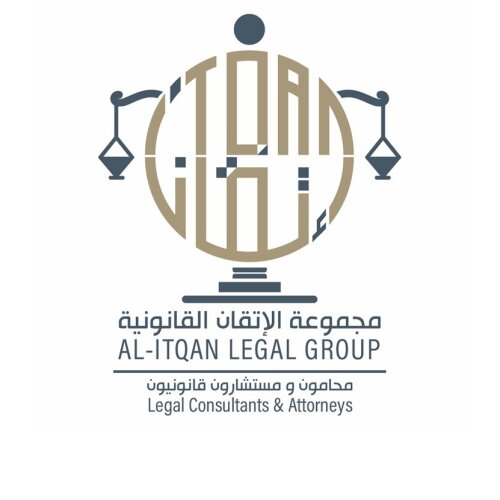Best Natural Resources Lawyers in Kuwait
Share your needs with us, get contacted by law firms.
Free. Takes 2 min.
Or refine your search by selecting a city:
List of the best lawyers in Kuwait
About Natural Resources Law in Kuwait
Kuwait is endowed with abundant natural resources, with petroleum being at the forefront. It possesses some of the largest oil reserves in the world, making the oil and gas sector pivotal to its economy. Apart from hydrocarbons, Kuwait also has untapped potential in other natural resources like solar energy. The country's legal framework governing these resources primarily aims to regulate extraction, utilization, and management to ensure sustainability and national benefit.
Why You May Need a Lawyer
There are several situations in which individuals or businesses might require legal assistance related to natural resources in Kuwait:
- Contract Negotiation: Engaging in negotiations related to oil, gas, or renewable resource projects often requires expert legal counsel to ensure that contracts are fair and in compliance with local laws.
- Regulatory Compliance: Ensuring compliance with Kuwait's stringent environmental and extraction regulations can be complex, and a lawyer can help navigate these requirements.
- Land Use and Permitting: Acquiring permits for exploring or developing natural resources often needs legal authorization and guidance through bureaucratic processes.
- Dispute Resolution: Legal disputes may arise over resource ownership, environmental damages, or contract breaches, necessitating legal representation.
- Investment Advice: Foreign and local investors might need legal advice to understand investment laws and protection in the natural resources sector.
Local Laws Overview
Kuwait's natural resources laws are primarily centered around oil and gas, which are governed by a mix of constitutional provisions, legislation, and international agreements. Key aspects include:
- State Ownership: The Kuwaiti Constitution asserts that all natural resources are publicly owned and managed by the state.
- Kuwait Petroleum Corporation (KPC): As the state's oil and gas arm, KPC and its subsidiaries play a crucial role in managing these resources.
- Environmental Protection: Legislation mandates strict environmental protection measures to prevent and mitigate the impact of resource extraction.
- Foreign Investment Laws: Policies are in place to regulate foreign participation, ensuring it aligns with national interests.
Frequently Asked Questions
What are the main natural resources found in Kuwait?
The primary natural resource in Kuwait is oil, followed by natural gas. The country also has potential in renewable resources like solar energy.
Who owns the natural resources in Kuwait?
According to the Kuwaiti Constitution, natural resources are owned by the state on behalf of the people.
Can foreign companies invest in Kuwait's natural resources sector?
Yes, foreign companies can invest but are subject to local laws and regulations governing foreign business operations and partnerships.
How is environmental protection enforced in Kuwait's resource sector?
The Environmental Protection Law lays down strict guidelines and measures, including assessments and compliance checks, to ensure sustainable practices.
What role does the Kuwait Petroleum Corporation play?
KPC oversees the exploration, production, and commercialization of oil and gas resources in Kuwait, functioning as the state's primary oil company.
Are there renewable energy initiatives in Kuwait?
Yes, Kuwait has initiated projects focusing on renewable energy, particularly solar power, to diversify its energy resources and reduce its carbon footprint.
Is public participation allowed in resource management decisions?
Public participation is limited, but governmental agencies may engage with stakeholders and consider their input on specific projects.
What are the legal consequences of violating natural resource laws?
Violations can lead to fines, penalties, and even imprisonment, depending on the severity of the offense, alongside remedial actions to fix damages.
How are disputes in the natural resources sector resolved?
Disputes are typically resolved through arbitration, court litigation, or government mediation, depending on the nature of the conflict and contractual terms.
What is the process for obtaining a permit for resource exploration?
The process involves submitting an application to the relevant authorities, complying with regulatory requirements, and possibly conducting an environmental impact assessment.
Additional Resources
Here are some useful resources for those involved in Kuwait’s natural resources sector:
- Kuwait Ministry of Oil: Supervises the exploration, production, and management of oil and gas resources.
- Environment Public Authority (EPA): Responsible for enforcing environmental laws and regulations.
- Kuwait Oil Company: A subsidiary of KPC, involved in the exploration and production of oil and gas within Kuwait.
- Kuwait Institute for Scientific Research (KISR): Offers research and development support in energy-related sectors.
Next Steps
If you require legal assistance in matters concerning natural resources in Kuwait, consider the following steps:
- Identify Your Needs: Clearly define your legal queries or issues related to natural resources.
- Seek Expert Opinions: Reach out to legal experts specializing in natural resources law for preliminary advice.
- Research Lawyers: Look for reputable law firms or legal practitioners with experience in the Kuwaiti natural resources sector.
- Schedule Consultations: Arrange meetings with potential lawyers to discuss your case and assess their approach and expertise.
- Gather Documentation: Prepare all relevant documents and information to provide your lawyer with a complete understanding of your situation.
Lawzana helps you find the best lawyers and law firms in Kuwait through a curated and pre-screened list of qualified legal professionals. Our platform offers rankings and detailed profiles of attorneys and law firms, allowing you to compare based on practice areas, including Natural Resources, experience, and client feedback.
Each profile includes a description of the firm's areas of practice, client reviews, team members and partners, year of establishment, spoken languages, office locations, contact information, social media presence, and any published articles or resources. Most firms on our platform speak English and are experienced in both local and international legal matters.
Get a quote from top-rated law firms in Kuwait — quickly, securely, and without unnecessary hassle.
Disclaimer:
The information provided on this page is for general informational purposes only and does not constitute legal advice. While we strive to ensure the accuracy and relevance of the content, legal information may change over time, and interpretations of the law can vary. You should always consult with a qualified legal professional for advice specific to your situation.
We disclaim all liability for actions taken or not taken based on the content of this page. If you believe any information is incorrect or outdated, please contact us, and we will review and update it where appropriate.
Browse natural resources law firms by city in Kuwait
Refine your search by selecting a city.















